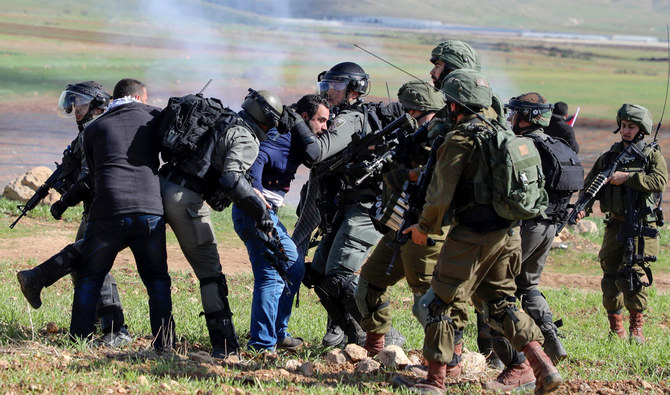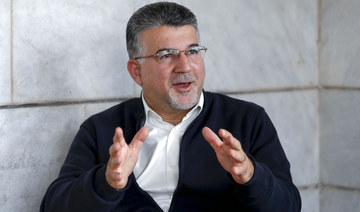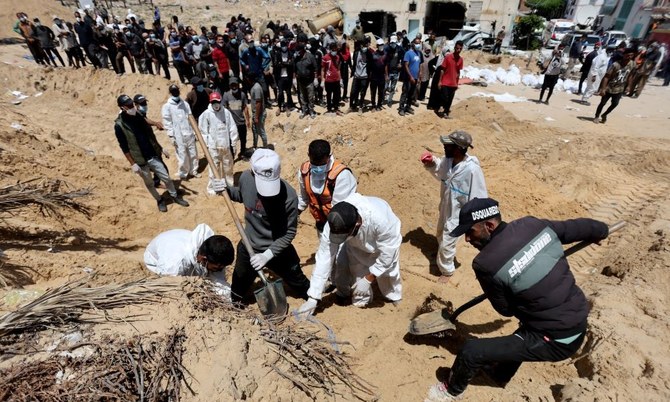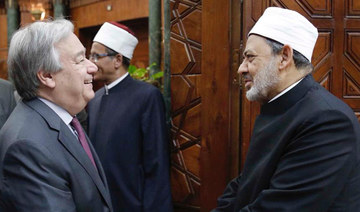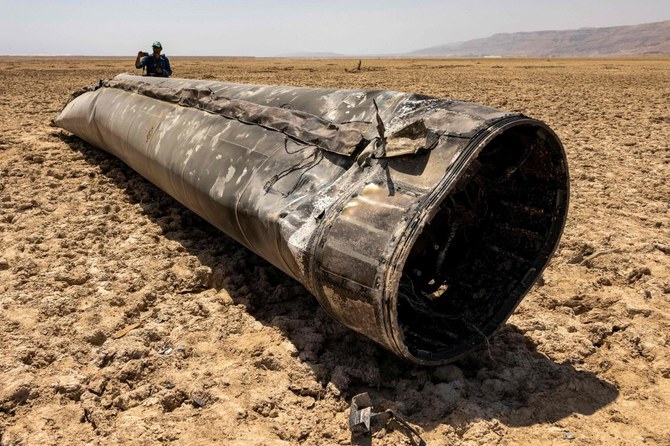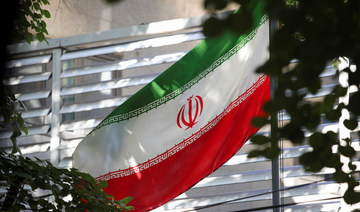LONDON: The UK government is facing calls to clarify its position on the Israeli-Palestinian conflict following accusations of recklessness and confusion regarding its response to US President Donald Trump’s proposed peace plan.
British Prime Minister Boris Johnson has heaped praise on Trump’s proposal, saying on Jan. 29 that it “has the merit of a two-state solution” and “would ensure Jerusalem is both the capital of Israel and the Palestinian people.”
But on Jan. 31, Foreign Secretary Dominic Raab highlighted Britain’s concern that Israel could start annexing parts of the West Bank.
“The UK is concerned by reports of possible moves toward annexation of parts of the West Bank by Israel,” he said in a statement.
“Any such unilateral moves would be damaging to renewed efforts to re-start peace negotiations, and contrary to international law,” he added.
“Any changes to the status quo cannot be taken forward without an agreement negotiated by the parties themselves.”
Trump’s plan would recognize Israeli sovereignty over most of its settlements on occupied Palestinian territory, and over the Jordan Valley, which constitutes roughly one-third of the West Bank.
On Jan. 28, Raab welcomed the plan, saying: “A peace agreement between Israelis and Palestinians that leads to peaceful coexistence could unlock the potential of the entire region, and provide both sides with the opportunity for a brighter future.”
Commentators and foreign policy experts have criticized the British government for welcoming Trump’s plan while also expressing concern over some of its central aims.
Lisa Nandy MP, a contender for the leadership of the Labour Party, said she was very concerned by Raab’s response, lambasting “the reckless way in which this administration has approached the issue.”
Chris Doyle, director of the Council for Arab-British Understanding, told Arab News: “The response of the British government is largely determined by managing its relationship with the Trump White House.”
He said: “It doesn’t want to be seen as criticizing the president directly, so it was soft on Trump. But it’s going to be much harder on Israeli Prime Minister Benjamin Netanyahu.”
This may explain why Raab’s statement was directed at Israeli moves toward annexation, not the plan itself.
Doyle said the relationship between London and Washington is much more nuanced than it used to be, and the “lukewarm” response to Trump’s plan suggests more complicated ties.
“These aren’t the days of (former British Prime Minister Tony) Blair and (former US President George W.) Bush. Normally we stand shoulder to shoulder (with the US), but this wasn’t the case with the Trump plan,” Doyle added.
There are “really significant disagreements” between the UK and US governments “over Huawei, climate change, trade and digital tax,” he said.
“The look of British statements so far is that the UK will be closer to the EU position on settlements, Jerusalem and the issue of Palestinian refugees.”
But because Downing Street “doesn’t want to be having more than one fight at a time with Trump, it’s going to have to pick its fights,” Doyle said.
This, he added, casts doubt over whether London will decide that the Israeli-Palestinian issue is worth fighting over.
“The initial response of the UK when Netanyahu first started talking about annexation (of parts of the West Bank in September 2019) was that it would have to be challenged, but we don’t know what that actually means,” said Doyle.
“There have been hundreds of statements saying settlements are illegal, for years and years, but the question is: At what point do we actually back that up?” he added.
“This question has profound consequences for international law. If this annexation is allowed to happen (other countries) will look at this and say: ‘Why can’t we?’”
Gilbert Achcar, professor of development studies and international relations at the School of Oriental and African Studies in London, slammed Britain’s “contradictory position.”
He told Arab News that Trump’s plan is “breaking with decades of foreign policy consensus among Western countries. What Trump is doing isn’t endorsed by any Western governments, and this is why the British position appears weak.”
The UK “doesn’t want to be negative about something Trump is doing, and they know that this is something to which Trump gives some importance,” Achcar said.
Middle East Minister Andrew Murrison told MPs on Jan. 30 that the UK’s view “remains that the best way to agree peace is through substantive peace talks between the parties leading to a safe and secure Israel living alongside a viable and sovereign Palestinian state based on 1967 borders.”
He added that London hopes to see “Jerusalem as the shared capital of both states, and a just, fair, agreed and realistic settlement for refugees.”
But Trump’s plan, which Johnson has welcomed, deviates substantially from the 1967 borders, recognizes Israeli sovereignty over Jerusalem, and rejects refugees’ right to return home.



